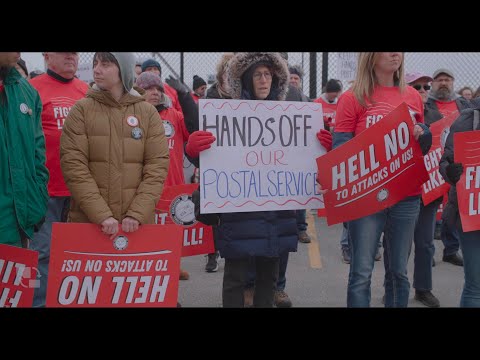Billionaire Elon Musk, who has come under nationwide protest as the face of President Donald Trump’s cost-cutting Department of Government Efficiency, was the target of a large demonstration Sunday at Cleveland’s main post office on Orange Avenue.
Organized by the Cleveland branch of the National Association of Letter Carriers, hundreds of postal workers, other union members and activists, railed against the notion that the best way to fix the financially struggling U.S. Postal Service is to privatize it.
Several speakers argued that the privatization of the Postal Service could lead to reduced service, particularly for those in rural communities where it is more expensive to deliver mail. They said the Postal Service can’t be viewed solely through the lens of a business model because it was founded on the principle of equitable service, where a letter can be sent and received anywhere in the United States for the same price.
“Rural communities that rely on the Postal Service, they vote Republican and they are the ones who will be affected the most if there is privatization,” said Erick Poston, president of the letter carrier association’s Cleveland branch, which represents 1,800 workers and 1,200 retirees. “You can make a profit in the urban areas because there are a lot more customers, but as you get further out, it costs more money to deliver there.”
Musk’s group and Postmaster General Louis DeJoy recently agreed to work together to identify ways to improve efficiency, though firing postal workers has not explicitly been part of the discussion. The Postal Service is an independent agency that was once a Cabinet-level department of the government.
Workers said Sunday they remain skeptical of DOGE and its plans.
“We are being left in the dark,” said Chris Anagnostopoulous, a letter carrier who delivers mail in Westlake. “I will be out here as much as we need. We are family and have to get the message out.”





